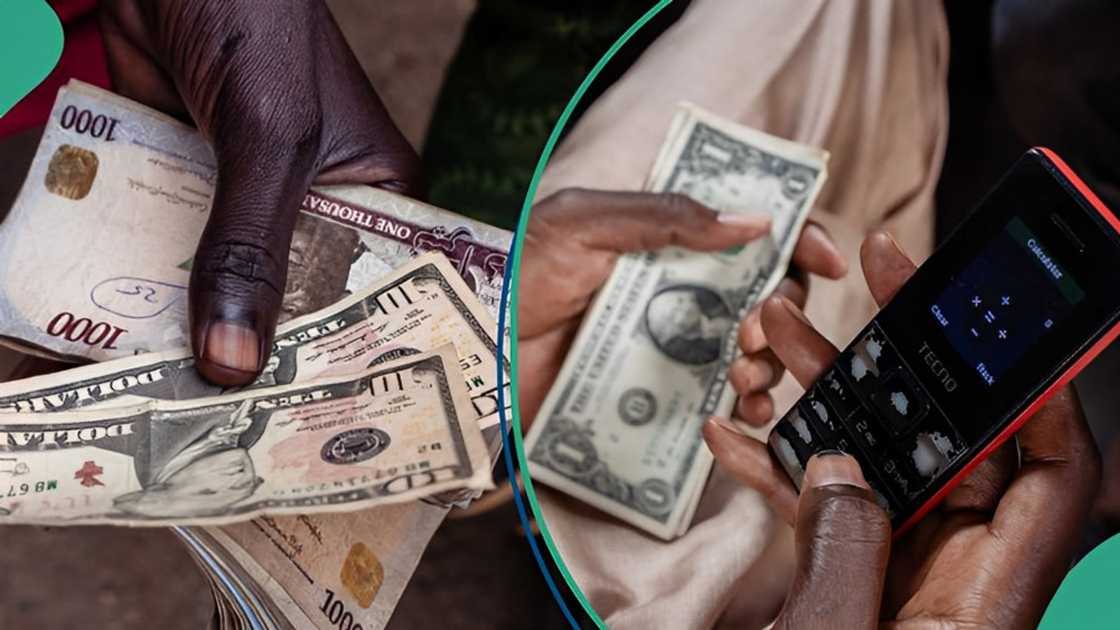Naira Ends 2024 on a Negative Note Against US Dollar in Forex Markets
- The value of the Nigerian currency ended 2024 on a negative note despite another poor performance in the foreign exchange markets
- The latest data show that the naira was weaker on the last trading day of 2024, dropping by 0.32%
- There are high expectations that the naira will perform better in the foreign exchange markets in 2025
Don't miss out! Join Legit.ng's Sports News channel on WhatsApp now!
Legit.ng journalist Dave Ibemere has over a decade of business journalism experience with in-depth knowledge of the Nigerian economy, stocks, and general market trends.
The Nigerian naira ended 2024 weaker in official and parallel foreign exchange markets.
According to data from the Central Bank of Nigeria, the naira closed at N1,535 to the dollar in the official foreign exchange market on Tuesday, December 31, marking the end of the trading year.

Source: Getty Images
The latest exchange rate represents 0.13% depreciation compared to the previous rate of N1,537 a dollar.
In the parallel market, the naira was in a similar situation, as currency traders quoted the dollar at N1,655 to the dollar.
This represents an annual depreciation of 69.2% in the official market (from N907) and 36.2% in the black market (from N1,215).
Rise in capital inflow
Leadership reports that the Central Bank of Nigeria (CBN) reported a significant rise in capital inflows into the country in its economic report for October 2024.
The apex bank disclosed that capital inflow surged to $1.89 billion, a substantial increase from the $0.40 billion recorded in September.
The CBN attributed this growth to increased portfolio investments in equity and money market instruments.
A breakdown of the data showed that portfolio investment inflow rose by 403.57% to $1.41 billion, compared to $0.28 billion in September.
Foreign direct investments (FDI) also grew by 350% to $0.18 billion, while other investments, mainly loans, increased by 275% to $0.30 billion.
Sources of Capital inflow
An analysis of the inflows revealed that portfolio investments dominated, constituting 74.65 per cent of total capital inflow, followed by other investments (15.80%) and FDI (9.55%). Sectorally, the banking sector emerged as the largest recipient, accounting for 49.21% of total inflows.
Other notable sectors included financing (26.12%), production and manufacturing (9.72%), brewing (5.55%), telecommunications (4.65%), and construction (3.39%).
The United Kingdom was the leading source of capital inflows, contributing 54.80%, followed by the United States (13.89%), the Netherlands (8.88%), South Africa (8.12%), Singapore (4.30%), and Mauritius (3.10%). Other countries accounted for the remaining inflows.
Tinubu expects N1,500 exchange rate in 2024
In another development, President Bola Tinubu has expressed optimism that the value of the naira would recover in the forex market.
In his 2025 budget presentation, Tinubu projected that the naira's value would recover to N1,500 per dollar.
The president also promised Nigerians that there would be a reduction in the inflation rate.
Proofreading by James, Ojo Adakole, journalist and copy editor at Legit.ng.
PAY ATTENTION: Сheck out news that is picked exactly for YOU ➡️ find the “Recommended for you” block on the home page and enjoy!
Source: Legit.ng





